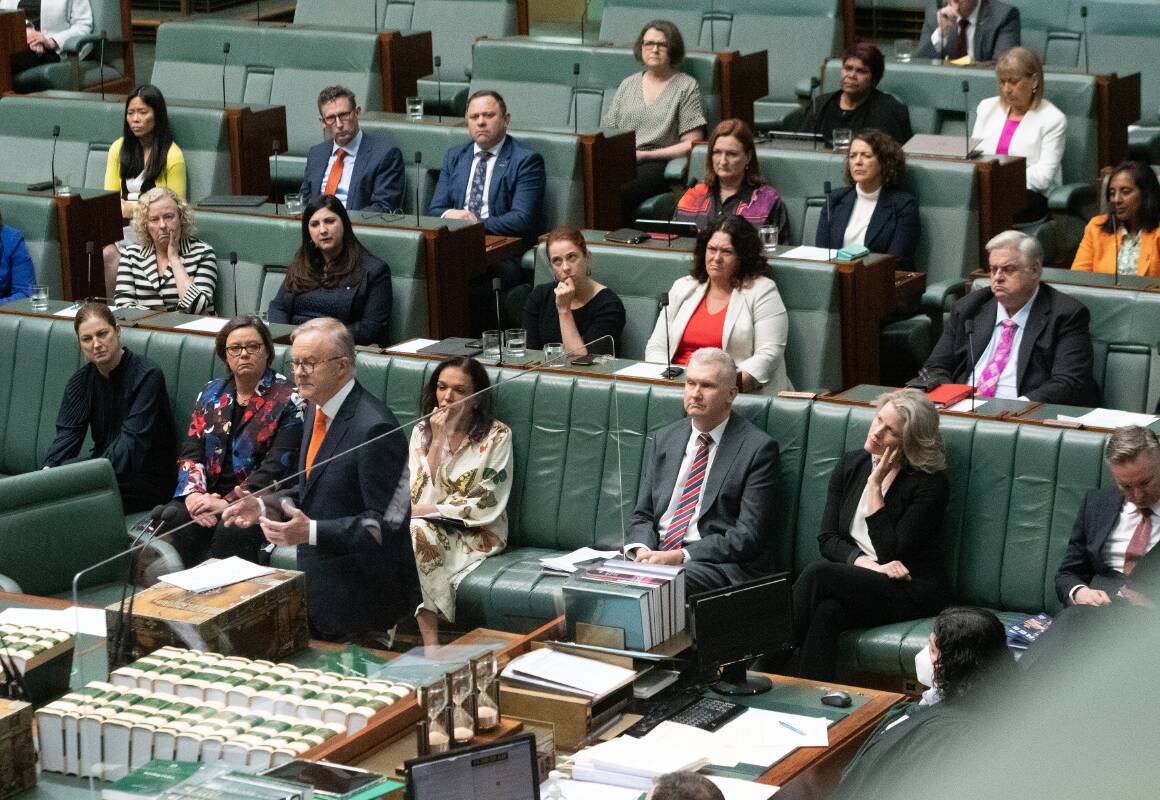
International Women's Day, March 8, is an opportunity to celebrate the extraordinary achievements made in the pursuit of gender equality, and to pay tribute to the women who have paved the way for us.
For me, it also means taking time to pause and recommit myself to the work ahead.
After a decade of government inaction, defunding of services and general disregard and disrespect for women's calls for change, the need for action is more pressing than ever.
For the first time in Australia's history, women make up a majority on the government benches - and what a difference that makes.
There is nothing more powerful than a movement of women joining forces to support other women. Having 52 per cent of women in the Albanese Labor government ensures that gender is not an add-on, but central to our thinking.
We are embedding a gender lens in government, in everything from how we work with the NDIS and social security system, to IR laws and the budget more generally.
In 2022, Australian women voted for change. In the first nine months of our majority-women government, our ambitious legislative agenda is already making Australia a better place for women by:
- Investing in early childhood education and extending paid parental leave (the biggest boost to PPL since its establishment in 2011), giving families more flexibility and choice.
- Supporting a pay increase for aged care and low paid workers, who are overwhelmingly women.
- Finalising the National Plan to End Violence Against Women and Children 2022-2032, supported by a record investment in the budget of $1.7 billion to implement the plan.
- Legislating 10-days paid family and domestic violence leave. Data released this week by the NSW Bureau of Crime Statistics and Research revealed a 5.9 per cent increase in domestic violence related assault over the past five years, meaning this policy will save lives.
- Funding and legislating to fully implement all 55 recommendations of Respect@Work.
- Establishing a National Women's Advisory Council to tackle medical bias and improve health outcomes for all Australian women.
This is just the beginning.
It's no surprise women do better under a Labor government. It was the Whitlam government in its first week of power in 1972 that removed the Commonwealth sales tax that had been applied to the contraceptive pill. They also appointed the world's first Advisor on Women's Affairs, Elizabeth Reid.
The Hawke government, through the leadership of Labor's first female cabinet minister, Susan Ryan AO, released the world's first Women's Budget Statement, and established the Commonwealth Sex Discrimination Act.
With Keating as prime minister, the Australian Labor Party agreed to introduce quotas for women in 1994, a decision that ultimately led to the majority women government we have today.
In the Rudd-Gillard years the first government-funded Paid Parental Leave scheme was introduced.
I regularly draw inspiration from these important moments in our national story. And perhaps no more so than in recent months as I've led an important body of work to develop national codes of conduct for parliamentarians, parliamentarians' staff and for everyone that engages with a Commonwealth parliamentary workplace.
This was a key recommendation of the Set the Standard report by Sex Discrimination Commissioner Kate Jenkins that made clear the shocking levels of sexual harassment, bullying and sexual assault taking place in the Australian Parliament.
The Australian people rightly called for change, and the Albanese government has been working to implement the commissioner's 28 recommendations, to deliver a safer and more respectful parliamentary workplace for everyone.
As chair of the Joint Select Committee on Parliamentary Standards that developed these codes, I was proud we were able to deliver a report that was unanimous in its resolve. The Australian Parliament has been considering codes of conduct for almost 50 years. I commend the members of that committee - representing different political parties and independents - for their diligence, hard work and determination to get this done.
While it was a tough process reaching consensus, it was what is required, and, indeed, what is expected of us by the majority of Australian citizens.
The Australian Parliament should be a model employer for safe and respectful workplaces.
Australian women expect, and indeed deserve, nothing less.
Sharon Claydon is the Member for Newcastle and deputy speaker in the House of Representatives
WHAT DO YOU THINK? Join the discussion in the comment section below.
Find out how to register or become a subscriber here.







